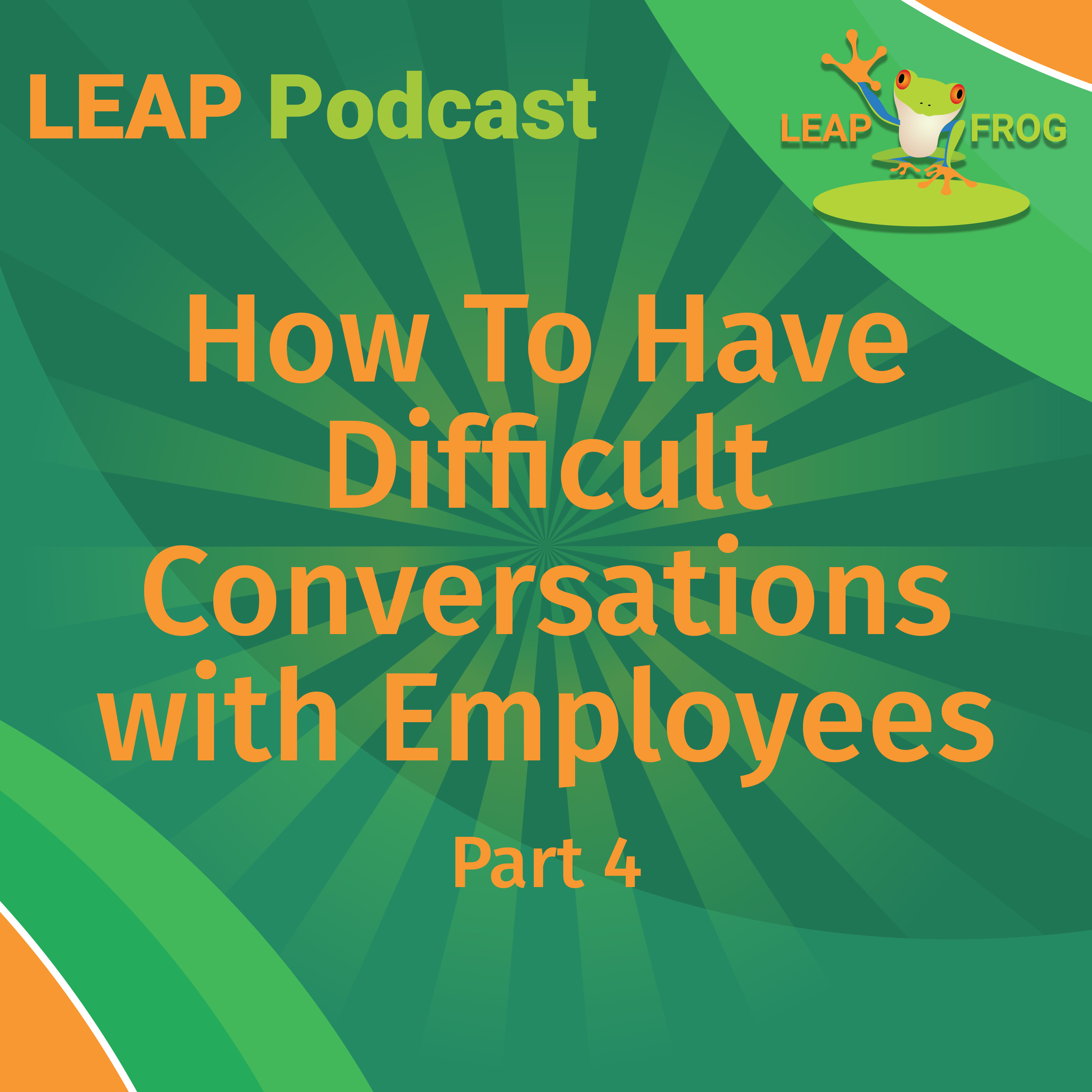Most people are never taught how to have difficult conversations with other people. For business owners, managers, or anyone else who interacts with employees, it is critical to know some very basic tips and strategies for having these conversations.
In parts 1, 2, and 3 we discussed how letting your employee know that you sincerely care about what they’re saying, allowing them to share their perspective on the conflict first, and asking open-ended questions can facilitate a successful conversation.
Your approach to having a difficult conversation with someone can mean the difference between building or maintaining a good relationship and destroying a relationship.
For more tips and coaching, please give me a call. I’m happy to guide you through difficult conversations with your employees.
Show Transcript
In this video, I’m going to talk more about how to have difficult conversations with employees. And this video is going to focus on the idea that each person in conflict has had some contribution to the conflict.
Rarely, if ever, is it just one-sided where one person should take 100% responsibility for the blame. And so what you want to do in your difficult conversation is, if you’re the manager, help your employee understand that you recognize that you may have had a contribution, something you did, maybe something you said, that contributed to this conflict that you have with your, with your employee. What you don’t want to do is you don’t want to have a conversation, a difficult conversation with your employee, and convey the message that they’re 100% responsible, you’re pointing the finger at them, and they’re all to blame. There was nobody else who bears any responsibility for this conflict.
So here’s a hypothetical. So let’s say you have an employee, Karen, and Karen did not perform very well on the last project that you assigned to her. Okay, so I’m going to have a difficult conversation with Karen as her manager. “Hi, Karen, thank you so much for meeting with me today. I know you’re super busy. I feel like there’s some conflict between the two of us regarding that last project that you worked on. And I don’t want you to feel that I’m here to blame you or that this is a time for me to point my finger at you, and assign 100% blame to you. Really, this is our time to explore your perspective and my perspective and really talk openly and transparently about what each one of us maybe did or maybe said or didn’t do that helped contribute to your performance on that project and this conflict between us. So I’d really like to start by hearing more about your perspective, would you feel comfortable sharing that with me?”
Okay, so immediately that should put your employee most of the time at ease, or at least more at ease because maybe, she’s likely feeling that this meeting is not to shame her. This meeting is not to blame her. This meeting is not to beat her over the head about her poor performance. This is to explore what happened, and maybe some opportunities to make things better. I almost guarantee that that will help put your employee more at ease when you have difficult conversations with them simply by communicating that you don’t think they’re 100% responsible and that other people including yourself, might have some contribution to the conflict.
So I hope you’ve enjoyed this video. Thank you so much for watching. If you found value, please consider subscribing. Thank you so much. Be well and have a wonderful day.


